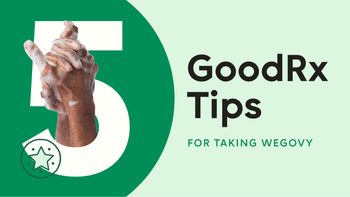
Is Sweating Good for Weight Loss?
Key takeaways:
Sweating is how your body cools your internal temperature, but it doesn’t affect weight loss. Focus on proven methods — such as regular exercise and a balanced diet — for sustainable weight loss.
Sweating has benefits, such as regulating body temperature, boosting circulation, and hydrating skin.
Sweating too much can cause dehydration, electrolyte imbalance, and heat rash.
Table of contents

If you’ve ever weighed yourself after a vigorous workout or a sweaty sauna session, you might have noticed that the number on the scale was a little lower. That could leave you wondering: Is sweating good for weight loss?
Sweating can help you lose water weight. But it’s not a long-term solution for healthy, sustainable weight loss. Here’s what you need to know.
Does sweating a lot increase weight loss?
The harder the workout, the more you sweat. So does that mean you’re burning fat?
Experts say no.
“Sweating has no impact on fat loss,” said Luke Carlson, MS, founder and CEO of Discover Strength. Sweat cools you down during exercise, but it’s not a measure of calorie burn or fat loss, he said.
You may lose some water weight after sweating, which explains why you might weigh a little less after a sweaty workout. But the loss is temporary. After you rehydrate to replace lost fluids, you’ll gain the weight back.
Does fasted cardio help you lose weight? Here’s what science says about exercising on an empty stomach.
You don’t have to turn to fad diets for weight loss. Get expert-approved tips to lose weight without dieting.
Don’t forget to track your progress. Consider these weight-loss journal ideas to set goals, plan meals, and track your wins.
While sweating doesn’t directly lead to weight loss, it may mean you’re exercising more intensely. Generally, the more intense the exercise, the more calories you burn. Burning calories with regular exercise can help you lose weight over time.
Still, exercise intensity and sweating don't always go hand-in-hand. Imagine exercising in a cold environment like cross-country skiing, said Milica McDowell, an orthopedic physical therapist with Gait Happens.
“You might not feel hot or even sweat much,” McDowell said. “But you’d be working at a high intensity and burning a ton of calories.”
Other factors can affect how much you sweat during exercise or other physical activities. Examples include your body weight, current health, and age.
What are the benefits of sweating?
Sweating may not increase weight loss, but it offers other potential benefits. Here are a few:
Regulates body temperature: Sweat’s main job is to regulate or cool down your body temperature. When temperatures rise, sweat glands release sweat onto the skin. The sweat then evaporates, helping lower your body temperature.
Boosts circulation: Increased body temperature triggers sweating. It also causes blood vessels to widen, allowing blood to flow more easily.
Moisturizes skin: Sweat contains substances that help attract and lock in moisture on the skin’s surface. That can hydrate your skin and help keep it healthy.
Can sweating too much be bad for you?
A little sweat is perfectly healthy — and beneficial. But too much sweat can have negative effects:
Dehydration: Sweating causes you to lose fluids. The more you sweat, the more fluids you lose. You become dehydrated if you don’t replace lost fluids by drinking water or other drinks. Dehydration can be serious, causing fatigue, dizziness, and confusion.
Electrolyte imbalance: You also lose electrolytes when you sweat. These minerals help balance fluid levels and support muscle and nerve function. If you don’t replace those electrolytes with food or supplements, it can lead to an imbalance. An electrolyte imbalance can cause symptoms, such as fatigue, irregular or fast heart rate, and muscle cramps.
Skin irritation: Typically, sweat moves to the skin’s surface through tiny ducts. But sometimes, those tiny ducts can become clogged, causing a heat rash (or prickly heat). Common symptoms include small bumps (often clusters), redness, itching, and blisters.
Heat exhaustion: Hot, humid environments can make you pretty sweaty. If you’re outdoors on a summer day, taking a hot yoga class, or stuck without air-conditioning, you may be at risk of heat exhaustion. Heavy sweating, fatigue, and dizziness are signs of this heat-related illness.
Underlying health issues: Excessive sweating is known as hyperhidrosis. It occurs when you sweat more than necessary to regulate body temperature. Hyperhidrosis can be a symptom of other conditions, such as hyperthyroidism, menopause, and diabetes. It can also be a side effect of medications like antidepressants.
Social and emotional issues: Constantly wiping sweat from your brow and soaking through your shirts can be embarrassing. You may feel anxious in public and avoid being around other people.
Tips for weight loss
You may not be able to sweat off excess weight, but there are proven strategies to help you lose weight in a sustainable way that promotes overall health.
Exercise regularly
Regular exercise can improve your physical and mental health. Over time, burning additional calories with exercise may also lead to weight loss.
Experts recommend 150 minutes of moderate-intensity aerobics weekly. Aim for 30 minutes of cardio — such as brisk walking, cycling, or swimming — 5 days a week. Add two weekly strength workouts that target every major muscle group.
Eat a balanced diet
Experts typically recommend cutting 500 calories per day for weight loss. But sustainable weight loss isn’t as simple as calories in and calories out. And it’s important to get enough nutrients to stay nourished.
Aim to eat a balance of carbohydrates, fats, and protein. Choose high-fiber carbs like fruits and whole grains to cut calories without sacrificing health. Try to reduce or limit foods high in saturated fats, refined carbohydrates, or sugar.
Stay hydrated
Hydration is critical for overall health. Research suggests that drinking more water may also be helpful for weight loss. Staying hydrated keeps your body working optimally. It may also help you burn more calories.
Your hydration needs depend on your age, weight, and current health. You’re well-hydrated if your urine is clear, pale, or straw-colored.
Get restful sleep
Sleep plays a crucial role in weight loss, too. Not getting enough sleep or having poor quality sleep has been linked to overeating and an increased risk of weight gain. Aim for 7 to 9 hours of restful sleep per night.
Manage stress
Being under constant stress can take a toll on your body and mind. Stress causes a spike in cortisol, a hormone that can make you hungrier and crave less healthful foods.
You can manage stress by incorporating relaxing activities into your routine such as:
Meditation
Outdoor walks
Yoga
Playing with pets
Practicing deep-breathing exercises
Track your progress
Keeping track of your weight-loss progress can help you gauge how well your new habits work. Plus, seeing progress can motivate you to keep going.
Frequently asked questions
Drinking water alone won’t help you lose weight. But it can support a complete weight-loss plan. Staying hydrated may help you burn more calories and feel fuller longer (if you drink it right before meals). Plus, you can reduce your calorie intake by swapping sweet drinks for water.
Generally, yes. The more you weigh, the more body mass you must move. This creates more heat, which generates more sweat.
Water can make your body weight fluctuate by as much as 5%. The exact amount varies depending on body weight, environment, diet, and activity level.
The bottom line
You may feel a bit lighter after sweating. But this water weight loss is temporary. Sweating is how your body cools your internal temperature — it doesn’t affect weight loss. In fact, sweating too much can cause dehydration, electrolyte imbalance, skin rash, and more. Better methods for weight loss include regular exercise, a balanced diet, sleep, and stress management.
Why trust our experts?



References
Bhutani, S., et al. (2017). Composition of two‐week change in body weight under unrestricted free‐living conditions. Physiological Reports.
Bialowas, D., et al. (2023). Examining the effects of pre-competition rapid weight loss on hydration status and competition performance in elite judo athletes. Scientific Reports.
Cooper, C. B., et al. (2018). Sleep deprivation and obesity in adults: A brief narrative review. BMJ Open Sport and Exercise Medicine.
Dazıroğlu, M. E. C., et al. (2023). Water consumption: Effect on energy expenditure and body weight management. Current Obesity Reports.
Dennis, E. A., et al. (2012). Water consumption increases weight loss during a hypocaloric diet intervention in middle-aged and older adults. Obesity.
Gagnon, D., et al. (2018). Chapter 13 - Sweating as a heat loss thermoeffector. Handbook of Clinical Neurology.
MedlinePlus. (2023). Electrolytes.
MedlinePlus. (2024). Fluid and electrolyte balance.
National Institutes of Health News in Health. (2022). Healthy weight control: Balancing eating and exercise.
Parashar, K., et al. (2023). The impact of hyperhidrosis on quality of life: A review of the literature. American Journal of Clinical Dermatology.
Scott, K. A., et al. (2013). Effects of chronic social stress on obesity. Current Obesity Reports.
Shiohara, T., et al. (2016). Sweat as an efficient natural moisturizer. Current Problems in Dermatology.
Thornton, S. N. (2016). Increased hydration can be associated with weight loss. Frontiers in Nutrition.
U.S. Department of Health and Human Services. (2018). Physical activity guidelines for Americans, 2nd edition.

























